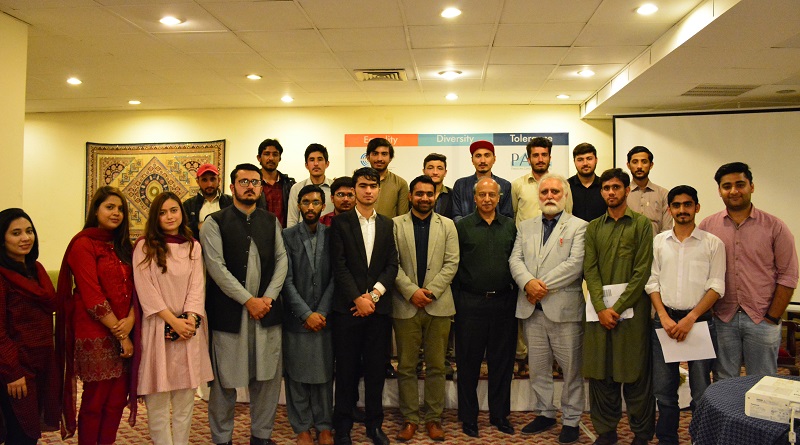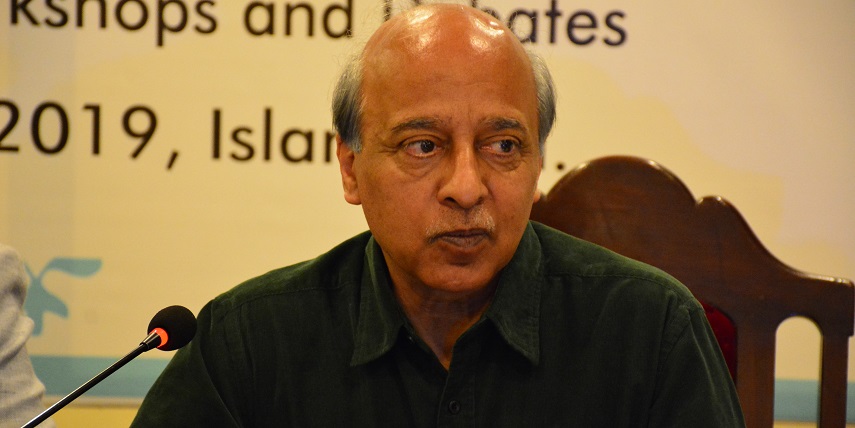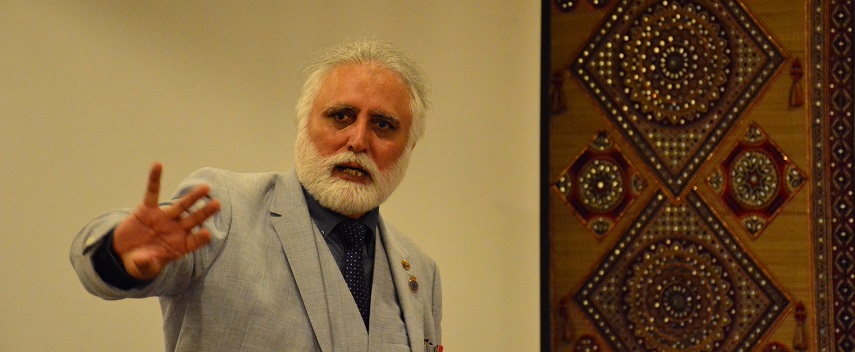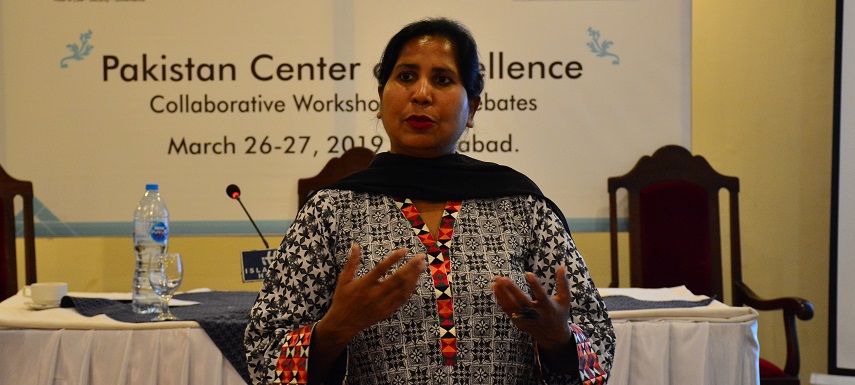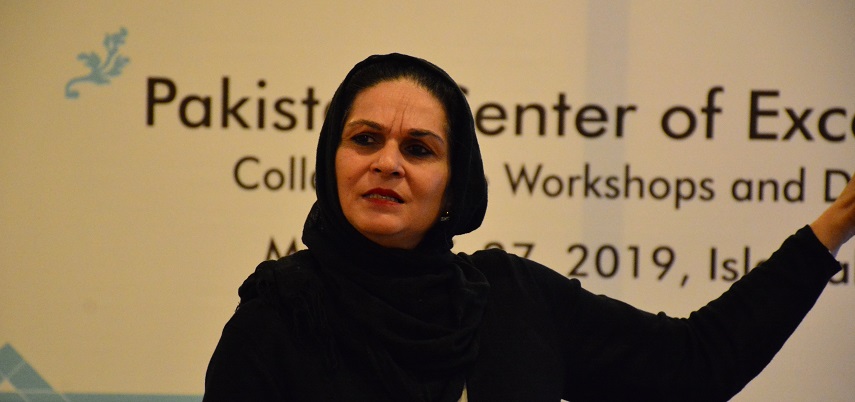Mr. Imtiaz Gul said that the objective of these workshops is to create an environment for debate and critical thinking. We normally avoid to question, one of the objective to elicit critical thinking and it starts with questioning. Our religion also encourages asking questions and challenge preconceived notions. We always need to consider the perspectives coming from different segments of the society.
Mr. Toaha Qureshi shared his views saying that Islam isn’t threatened by the European society. There are prejudices against every race and religion in Western world. Nut the question is how we fight these problems. One should have the resistance to fight against these racial issues and one of the weapon is to be closely associated with your roots but at the same time should have to be able to gel in to the modern world. Debates should be based on realistic approach. In Europe, Muslims are facing prejudices but at the same time the same behavior is prevalent in South Asia as well. We need to understand that terrorism and extremism are international phenomenon. These are not limited to one region or religion.
There is a huge responsibility on youth. Not every Muslim is a terrorist and we need to project this message. This messaged can only be spread through adopting a moderate way of depolarization between religious and liberal extremists. We need to focus on streamlining the education system by bringing on all the modes of education on the same page. This way, we will be able to create a compatible environment which can help our youth to pave the way for a brighter future.
Ms. Romana Bashir spoke on respect for diversity, rights and opinions. She shared her views by asking a question about definition of diversity and tolerance about diverse groups in the surroundings. She discussed about diversity of ideas, beliefs and practices. She pointed that diversity is not a problem but a binding and connecting force. It is joyful and a source of learning because we interact with people from different religious, cultural and political beliefs. The variety of ideas opens an environment for debate and learning but we also need to understand that these debates should not be judgmental. Uniformity can be boring, diversity brings in colors to life. To understand diversity, there are the terms of acceptance and respect which need to be understood and practiced. Tolerance is a negative connotation, we should be focused on accepting and respecting the people without any discrimination. The universe itself is an example of diversity which indicates that the creator of the world loves and appreciates diversity. Therefore, we human being also need to respect the decision of the creator and respect diversity.
However, living in a heterogeneous society we see conflicting ideas leading towards clashes between different groups. It only happens when we see diversity as a problem rather appreciating. In this form of contradiction, opposing people believe that the other person should act like me or should not exist which is destructive thought. We don’t have control over being born in a family or religion of our choice which makes us dependent on the choice and willing of the creator which is not in our control. Therefore, we cannot actually force people to convert and accept what we believe in. Not respecting diversity leads to chaos in the society. Diversity exists in various forms, we can celebrate it through regular interaction and enjoying festivities.
On day two of the workshop, Ms. Humaira Msihuddin had a session on multiculturalism and pluralism. She explained the concept by discussing various anthropological theories and their practicality. She also gave Islamic references and examples from the life of Holy Prophet (PBUH) that how diversity was celebrated in his times. How tolerant was his behavior towards non-believing and how He promoted the ideals of multiculturalism and pluralism. Ms. Masihuddin shared that Prophet believed in equal rights of worship to the minorities and at various points of life He protected them. It was his conduct and behavior which made many people to accept Islam. His treatment of religious minorities and weaker people was exemplary. He protected the rights of the people who were actually against his life. His enemies tried to manipulate him at various occasions but he always forgave them and never took revenge for his personal sake. But sadly, Ms. Humaira added that despite being his followers have become intolerant and use religions for the sake of personal benefits. We have made religion a tool of revenge against religious minorities. We have lost the idea of respecting human beings and are more concerned about ourselves. Our Prophet’s life was a true example of living for others. Islam is not the religion of extremism but peace and harmony. Some people have changed the interpretation of some of the ideals for themselves but that is not the actual picture of Islam. The actual picture was portrayed and practiced only by the Prophet and we can only achieve the objective of a peaceful and cohesive society if we follow his footsteps and what exactly has been told by Allah in Quran.
The last session of the workshop was conducted by Mr. Ammad Khalique on media and ethics. He started his session with defining ethics that how it is a relative term. He said that every individual has his/her own interpretation of ethics considering the subjective nature of the term. He stated that the media should consider norms and values of a society, selection of words and body language should match the cultural values. Sensationalism should be avoided and self-censorship should be considered. Biased and abusive attitude should not be accepted. He stressed on the importance of being neutral and presenting authentic news.

